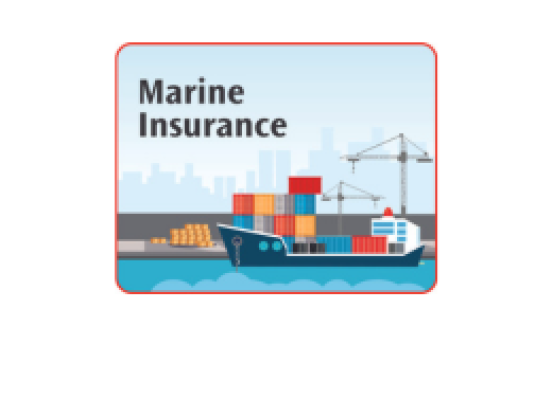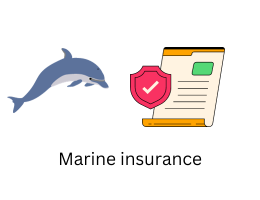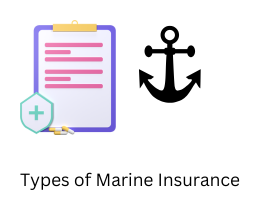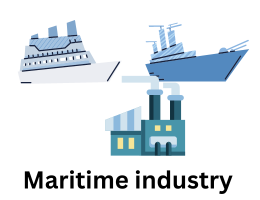
Introduction to Marine Insurance
- By admin --
- Friday, 11 Aug, 2023
Marine Insurance: Safeguarding Maritime Ventures
Marine insurance is a critical and time-honored aspect of global commerce, designed to mitigate the risks and uncertainties inherent in maritime activities. As the backbone of international trade, marine insurance provides a safety net for shipowners, cargo owners, and other stakeholders, ensuring the smooth flow of goods across oceans and safeguarding investments against unforeseen perils. This comprehensive introduction delves into the fundamental principles, types, key players, and benefits of marine insurance, shedding light on its pivotal role in facilitating global trade.
Historical Foundations:
The roots of marine insurance can be traced back to ancient maritime civilizations, where merchants and shipowners pooled resources to collectively mitigate the perils of seafaring. These informal arrangements laid the groundwork for modern marine insurance, which began to take shape in coffeehouses and trading hubs during the late 17th century. One of the earliest recorded instances is the formation of Lloyd's of London in the late 17th century, a pivotal moment that marked the emergence of a formal marine insurance market.
Fundamental Principles:
At its core, marine insurance operates on the principle of risk distribution. Shipowners, cargo owners, and other parties involved in maritime trade transfer a portion of their risk to insurance underwriters in exchange for a premium. Underwriters, who assess the risks associated with a voyage or shipment, calculate premiums based on factors such as the nature of cargo, route, vessel type, and prevailing maritime conditions.
Types of Marine Insurance:
-
Hull Insurance: This type of insurance covers the physical hull and machinery of a vessel against a range of risks, including collisions, grounding, fires, and sinking. It safeguards the shipowner's investment in the vessel itself.
-
Cargo Insurance: Cargo owners can protect their goods against loss or damage during transit. Cargo insurance is tailored to specific commodities and can cover various risks such as theft, damage due to mishandling, and natural disasters.
-
Freight Insurance: Freight insurance, also known as freight forwarder's liability insurance, safeguards the interests of freight forwarders against liabilities arising from the loss or damage of cargo while it's in their care.
-
Liability Insurance: Marine liability insurance covers third-party liabilities, such as damage to other vessels, pollution caused by a ship's operations, and injury to crew members or passengers.
-
Protection and Indemnity (P&I) Insurance: P&I clubs offer comprehensive liability coverage for shipowners, protecting them against a wide range of liabilities not covered by conventional marine liability policies.
-
War Risk Insurance: This specialized insurance covers risks associated with acts of war, terrorism, and other hostile activities that may endanger maritime operations.
-
Demurrage Insurance: Demurrage refers to charges incurred when a vessel exceeds its allotted time for loading or unloading. Demurrage insurance provides financial protection against these additional costs.
Key Players:
-
Insured Parties: Shipowners, cargo owners, and freight forwarders are the primary beneficiaries of marine insurance, protecting their financial interests from potential losses.
-
Underwriters: Insurance companies and underwriters assess risks and determine premiums based on their expertise and analysis of maritime conditions.
-
Brokers: Insurance brokers act as intermediaries between insured parties and underwriters, helping clients find suitable coverage and negotiating terms.
-
P&I Clubs: Protection and Indemnity clubs are mutual associations that provide liability coverage to shipowners and operators.
-
Surveyors: Independent surveyors assess vessel conditions, cargo quality, and damages to determine the validity of insurance claims.
Benefits of Marine Insurance:
-
Risk Mitigation: Marine insurance minimizes financial risks for all parties involved in maritime trade, ensuring that unexpected losses do not disrupt supply chains.
-
Trade Facilitation: By providing a safety net, marine insurance encourages international trade by instilling confidence in buyers and sellers, even in the face of potential losses.
-
Investment Protection: Shipowners' investments in vessels, cargo owners' investments in goods, and other maritime ventures are protected from a wide range of perils.
-
Legal Compliance: Many countries require vessels to have insurance coverage before entering their ports, ensuring compliance with international maritime laws.
-
Innovation: The evolution of marine insurance has spurred innovative solutions to address emerging risks, such as cyber threats and environmental concerns.
Conclusion:
Marine insurance stands as a testament to human ingenuity in navigating the challenges of maritime trade. Its historical roots, fundamental principles, diverse types, key players, and manifold benefits underscore its vital role in shaping a resilient global economy. By mitigating risks, enabling seamless trade, and safeguarding investments, marine insurance has, and continues to be, an indispensable component of modern commerce, ensuring the safe and prosperous journey of goods across the world's oceans.





